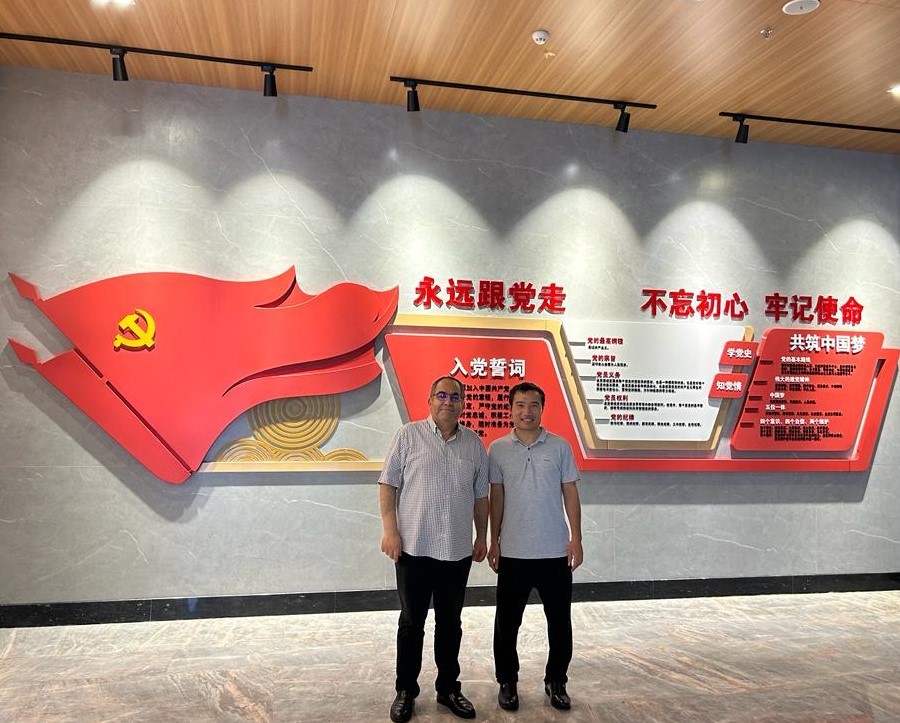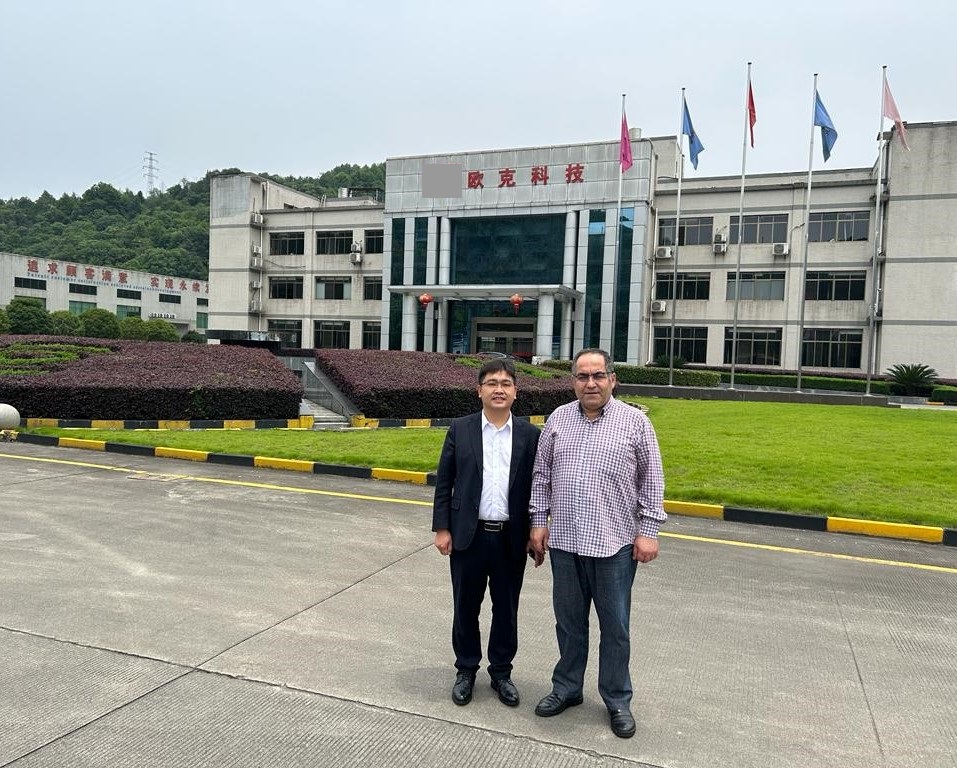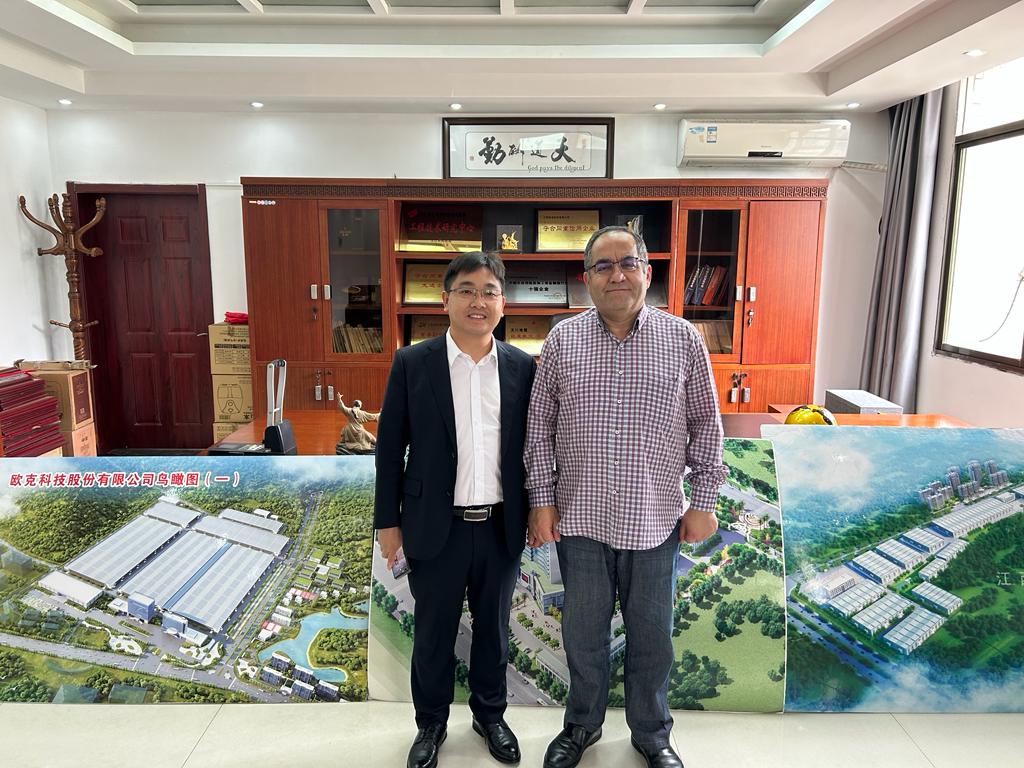El Abdallah affirmed that “China views Lebanon as a strategic partner on the map of the Belt and Road Initiative, a suitable gateway for contributing to the reconstruction of Syria, and a key component in the economic and political fabric of the Middle East.”
He added that “China has always expressed its interest in increasing the volume of investments in Lebanon,” noting that “China’s investment policy in Lebanon takes into account several factors most importantly, Lebanon’s political and economic stability on one hand, and the influence of major powers on the Lebanese file on the other. We must also not overlook the importance of the normalization of Saudi–Iranian and Saudi–Syrian relations, and its positive impact on the prospects of enhancing Chinese investments in Lebanon.”
El Abdallah emphasized that “Lebanon is not an isolated island economically or politically from China, as Beijing views it as a key pillar of its economic and political relations with all Middle Eastern countries. This was clearly evident during the Arab–Chinese Summit held in Riyadh last December, when Caretaker Prime Minister Najib Mikati met with Chinese President Xi Jinping. During that meeting, President Xi highlighted the importance of expanding bilateral relations on both the economic and social levels, as well as launching renewable energy projects in Lebanon.”
El Abdallah noted that “this meeting between the two sides recalls the visits of Chinese delegations to Lebanon before and during the economic crisis that struck the country,” adding that “these delegations focused on potential Chinese activities in Lebanon, primarily establishing infrastructure that would ensure the building of a strong economy.”

He revealed that “in 2020, a Chinese delegation expressed to former Prime Minister Hassan Diab the readiness of Chinese companies to cooperate in electricity production and in other fields such as railways, water treatment, oil, waste management, and the development of industrial projects, in addition to the information and communications technology sector.”
El Abdallah said, “Needless to say, Chinese telecom and technology giant Huawei has a strong presence in Lebanon. It has contributed to developing mobile and fixed communication networks and has established cooperation projects with various sectors, including economic, educational, and healthcare ones.”
He added, “We must not forget that in 2017, Lebanon and China signed a Memorandum of Understanding to jointly promote cooperation within the framework of the Silk Road Economic Belt and the 21st Century Maritime Silk Road Initiative. The memorandum provided for cooperation in areas such as transportation and logistics, investment and trade, infrastructure, renewable energy, and cultural exchange, among others.”
On the commercial front, El Abdallah noted that “Lebanon’s exports to China remain very modest and cannot be compared to the volume of Lebanese imports from China.”
He explained that “according to customs figures, China’s exports to Lebanon amounted to around USD 2.675 billion in 2022, while Lebanon’s exports to China were only a few million dollars, which is not a promising indicator for the growth of Lebanese exports.”

El Abdallah called for realism in Lebanon’s relationship with foreign investments, particularly Chinese ones. “China needs a reliable partner in Lebanon one capable of providing a stable investment climate that welcomes capital inflows. At present, however, Lebanon has yet to take a clear stance regarding Chinese investments or its international relations in general. The country has not launched a comprehensive recovery plan, nor presented a solution to distribute the massive losses caused by the economic collapse. It has yet to rebuild the banking sector or the economy as a whole, and the political forces have failed to agree on electing a president and subsequently forming a government that enjoys Arab and international confidence.”
He concluded: “We must ask ourselves how can we expect others to help us if we do not help ourselves first?”
El Abdallah affirmed that “the massive Chinese investments that could potentially flow into Lebanon do not depend solely on China and its government, which holds great respect for our country, but rather on our own leadership and the establishment of a stable, consensual political environment that encourages the launch of a new phase of prosperity and foreign direct investment.”





